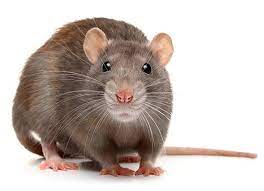Skin disinfection methods to augment animal welfare

Rodents are increasingly the animals of choice for researchers modeling human surgical procedures. Laboratory rats are often involved as models of research related to cardiovascular and neurologic interventions. Before performing the surgery, researchers aseptically prepare skin around the head and neck areas for catheterization and instrumentation. To assess refinements in skin disinfection methods to augment animal welfare, this research project tested effectiveness of waterless alcohol-based antiseptic (compared to traditional skin prep methods) and delivered active warming as methods to enhance postoperative outcomes. While study results did not find statistically significant impacts from active warming procedures, the trends toward welfare improvements warrant additional work, particularly since heavier male rats recovered more rapidly from isoflurane anesthesia compared to lighter male and female rats.
PI: Professor F. Claire Hankenson, College of Veterinary Medicine
CSTAT Collaborators: Frank Lawrence and Thien Le
